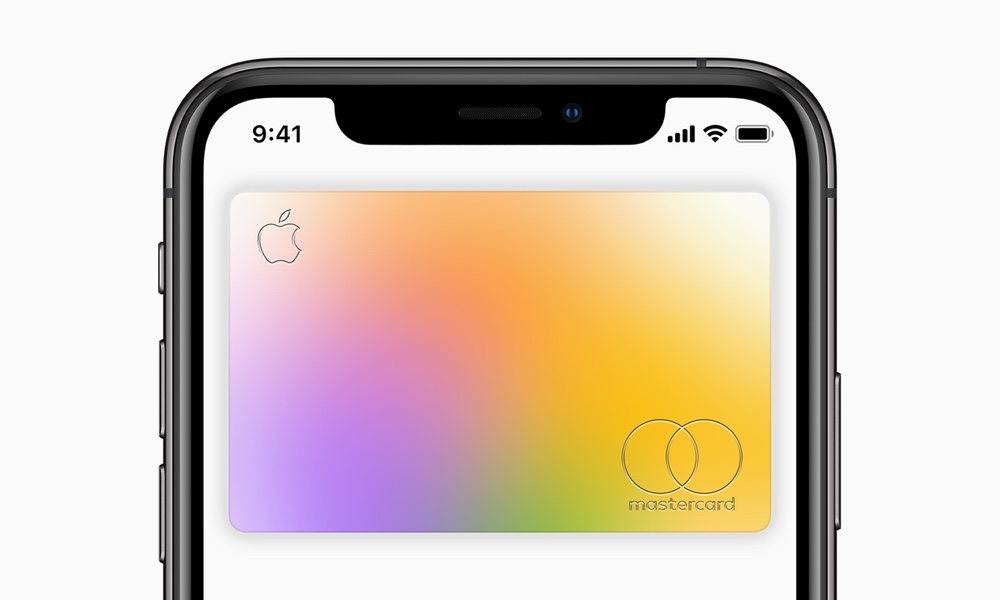It’s Here! Apple Card Now Available to Everyone in the U.S.
 Credit: Apple
Credit: Apple
Toggle Dark Mode
After a gradual rollout to Apple corporate employees, followed by Apple retail employees, and then a smaller, invite-only preview for the general public, Apple’s shiny new titanium credit card is now available to everyone in the U.S.
Apple formally announced the release this morning, noting that any Apple customer running iOS 12.4 or later can now apply for the Apple Card through the Wallet app on their iPhone. It’s unclear right now if those running iOS 13 betas are also included, or if they’ll have to revert to iOS 12.4 or wait for the public release of iOS 13.
As we’ve already seen, the application process should take mere minutes for most users, and — if approved — you’ll be able to start using the virtual Apple Pay version of the Apple Card right away anywhere that Apple Pay is accepted — in stores, in apps, and on websites — while waiting for the physical card to arrive in the mail. Even then, however, the Apple Card encourages users to stick with the virtual version as much as possible.
We’re thrilled with the overwhelming interest in Apple Card and its positive reception. Customers have told us they love Apple Card’s simplicity and how it gives them a better view of their spending.
Jennifer Bailey, vice president of Apple Pay
But There’s More…
When Apple first announced the Apple Card, it said that customers would get 3% cash back from anything purchased from Apple — be it physical products from the Apple Store, subscriptions like Apple Music and Apple News+, media purchases from iTunes, or even apps from the App Store. Everything else would get 2% cash back when the card was used with Apple Pay, or 1% cash back if you have to use the physical card.
With today’s launch, however, Apple has announced that more merchants will be offering the 3% cash back, starting with Uber, and Uber Eats. Customers can request a ride through Uber in more than 700 cities around the glove, or order food through Uber Eats in more than 500 cities, and it appears that the 3% cash back will be applied regardless of where in the world you’re using Uber.
While Uber and Uber Eats already support Apple Pay, Apple also notes that the payment service will soon be expanding to other Uber services like Uber Cash, Scheduled Rides, and Jump, providing even more options for 3% cash back.
It doesn’t sound like this is a limited-time introductory offer either, but rather a permanent partnership with Uber as part of the Apple Card’s higher-rate cash back, and Apple says that it plans to continue adding more popular merchants and apps “in the coming months.”
The Apple Card is also particularly unique in that it offers daily cash back — cash back rewards are credited immediately to the user’s Apple Cash card, where they can be spent directly via Apple Pay, sent to family and friends via iMessage, or transferred to a bank account, in the same way as any other Apple Cash balance.
No Fees, Machine Learning, and Privacy
Apple’s press release also reiterates all of the other great features that make the Apple Card unique, including the fact that there are absolutely no fees associated with the card — no annual fee, no late fees, no international transaction fees, and no over-limit fees.
Apple Card also uses machine learning and Apple Maps to more clearly label transactions with proper merchant names, which will make tracking spending less cryptic, as merchant names set by the terminal can be more inscrutable, especially in small businesses. Monthly and weekly spending summaries will help users track their spending habits, and the Wallet app will also show users how to best manage their payments to minimize or avoid paying interest entirely.
Lastly, as Apple has already repeatedly promised, neither Apple nor Goldman Sachs will keep track of where customers have shopped, what they have bought, or how much they have paid, not share or sell any data to third parties for marketing and advertising.
At this point, the Apple Card remains available in the U.S. only. While Goldman has said it’s exploring the launch of the card in other countries — and Apple has filed Apple Card trademarks around the world — there’s not yet any solid information on when the card may expand outside of the U.S.






